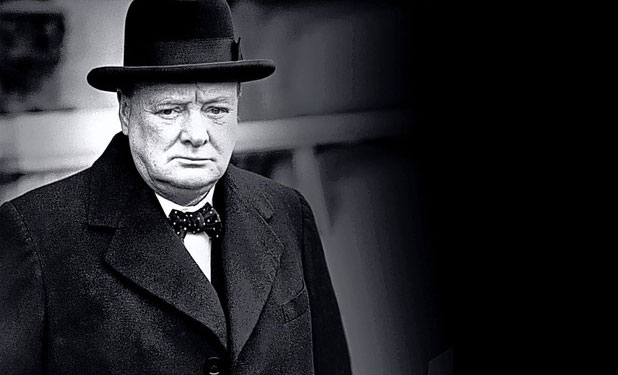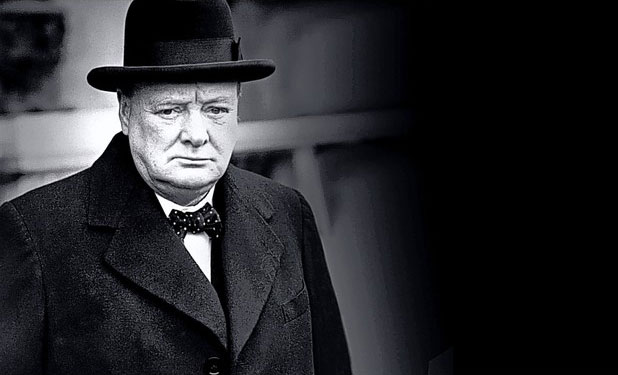
Past Events
21st Century Global Leadership Programme and Seminar

October 23, 2015
Friday, 23 October 2015
Location: Guildhall, Gresham Street, London, United Kingdom
 2015 is the fiftieth anniversary of Sir Winston Churchill’s death and the seventy-fifth anniversary of his “finest hour” in 1940 when he became Prime Minister. To commemorate this anniversary the aim of this 21st century statesmanship programme, with Sir John Major as the Patron, is to provide a fitting tribute to Churchill’s memory and his legacy as a world statesman and to put the the finger on today’s top level strategic issues.
2015 is the fiftieth anniversary of Sir Winston Churchill’s death and the seventy-fifth anniversary of his “finest hour” in 1940 when he became Prime Minister. To commemorate this anniversary the aim of this 21st century statesmanship programme, with Sir John Major as the Patron, is to provide a fitting tribute to Churchill’s memory and his legacy as a world statesman and to put the the finger on today’s top level strategic issues.
The key elements of the programme are:
- World class organisations
- Eminent international panels
- Examining the big global strategic issues
- Short recommendations report for global leaders format
- Seminar focusing on the skill sets required of 21st century leaders
- Joining the dots from the panels for 21st century statesmanship
- ‘So what?’ overview analysis of all panel reports and final seminar for leaders, future leaders, policy makers, academics, and global citizens
- Global streaming of key panel events and main seminar
- Reports digitally and collectively published
- Mainstreaming student and next generation engagement throughout
- Networks and alliances within and between panels follow-on work
- Patron – Sir John Major
- Seminar Chair – Lord George Robertson
- Seminar venue – London Guildhall
The launch included talks by Sir Nicholas Soames, Lord George Robertson, Sir Lawrence Freedman, Harriet Green, Sir David King, Kirsty Lang, and was introduced by Jamie Balfour and Nigel Hall.
Programme Concept:
- Eminent international panels will be established by participant organisations who will ‘own’ a global-strategic theme, and produce a short report.
- On 23rd October 2015 a ‘different to the usual high level talk shop’ seminar will be held in London around the theme of the skill sets required of statesmen and women in the 21st century – and joining the dots from the various panel reports. Lord George Robertson (former Secretary General of NATO) will chair, keynote speakers will include heads of government level, and guests will include eminent experts, and directors and top panellists from participant organisations. Each guest will be asked to bring with them one 25-40 year old and one under 25 year old to ensure a truly inter-generational gathering and inclusive discussion.
- Key panel events and the main seminar to be streamed across a global network, and the reports will be digitally and collectively published.
You can view the Churchill 2015 Leadership Programme Launch Event, held at the Churchill War Rooms, here.

2025 International Churchill Conference
Panel Formation:
- The Royal College of Defence Studies (established by Churchill) – “The use of the military instrument” (Sir Tom Phillips, General Sir Richard Barrons, Professor Ashley Jackson, General Manfred Lange, Dame Mariot Leslie, General Sir John McColl, Lieutenant General Lex Oostendorp).
- Churchill College Cambridge (established by Churchill) – “Joined-up scientific advice for 21st century leaders” (Dame Athene Donald, Lord Peter Henessy, Dr Robert Doubleday).
- King’s College London – “Instability and conflict in the 21st century” (Chair: Professor Sir Lawrence Freedman; Professor Theo Farrell, Sir Nigel Sheinwald, Sir David Omand, General Sir Rob Fry, Sir John Sawers, Dr Edwina Moreton; King’s Think Tank – student-led policy institute).
- The Ditchley Foundation – “Democracy in the digital age” (Sir John Holmes, Professor Vernon Bogdanor, The Rt Hon Dominic Grieve, Lord Peter Hennessy, Bronwen Maddox, Matthew Smith).
- The Royal United Services Institute – “Leadership in conflict and war: The Transatlantic Intelligence Relationship” (Professor Michael Clarke, John D Negroponte, Sir John Scarlett, Professor Sir David Omand, Gill Bennett, Professor Philip Bobbitt).
- The Met Office – “Taking the planet into unchartered territory: the changing climate” (Sir David King, Dame Julia Slingo and others).
- The London School of Economics – “21 st Century Power: shifts, diffusion and decay” (Professor Michael Cox, Sir David Manning, Professor Danny Quah, Dr Nicholas Kitchen, Susan Scholefield).
- UNDP Global Centre for Public Service Excellence (Singapore) – “Vision, Foresight and Statesmanship” (Patron – Helen Clark, Head of UNDP and former Prime Minister of NZ).
- The Royal Institute of International Affairs, Chatham House – “Tackling Global Diets to Curb Greenhouse Gas Emissions ”(Dr Robin Niblett and others).
- Von Hugel Institute, Cambridge Inter-Faith Programme, St Mary’s University Twickenham, Theos, Faith in Leadership, Christ Church Oxford, Georgetown University – “Faith and religion in the 21st century” (Mary McAleese, former President of Ireland, Vice Chancellor Francis Campbell, Vice President Thomas Banchoff, Professors John Loughlin, David Ford and Nigel Biggar).
- Tomorrow’s Company, BlackRock, and others – “Business and Finance” (Mark Goyder, Cameron Ewen Watt).
- Learn to Lead, Moller Centre, Churchill College Cambridge, Royal Military Academy Sandhurst – “Next Generation Leadership” (20 Next Generation Leaders -18-25 year olds – attend ‘Churchill Changemakers’ leadership training then become peer-mentors; senior panel: The Rt Hon Dominic Grieve MP, Baroness Doreen Lawrence, Professor Georgia Sorenson, Major General Stuart Skeates, Gillian Secrett).
- Nik Gowing & CIMA – “Thinking the Unthinkable: a new imperative for leadership in the digital age” (Lord Nicholas Stern, Dominic Barton, Sir Robert Cooper, Sir John Holmes, Sir Lawrence Freedman, Sir Jeremy Greenstock , Sir Sherard Cowper-Coles, Professor Michael Clarke, Professor Ian Goldin, Charles Grant).
- Moller Centre, Churchill College Cambridge – “Practical Leadership: Capabilities and behaviour to adapt and thrive” (Gillian Secrett and others).
- Lancaster University & BT Group – “Workplace Wellbeing in an Aging Society” (Professor Sir Cary Cooper, Dr Paul Litchfield, and others).
- Barbican Centre, British Council, Creative Industries Federation – “The Power of Culture: global leadership and the Arts” (Sir Nicholas Kenyon, Sir Roger Gifford, Graham Sheffield and others).
Discussions are ongoing with regard to a further panel: Environmentalism from top to bottom: political leadership and the natural world.
Subscribe
WANT MORE?
Get the Churchill Bulletin delivered to your inbox once a month.



